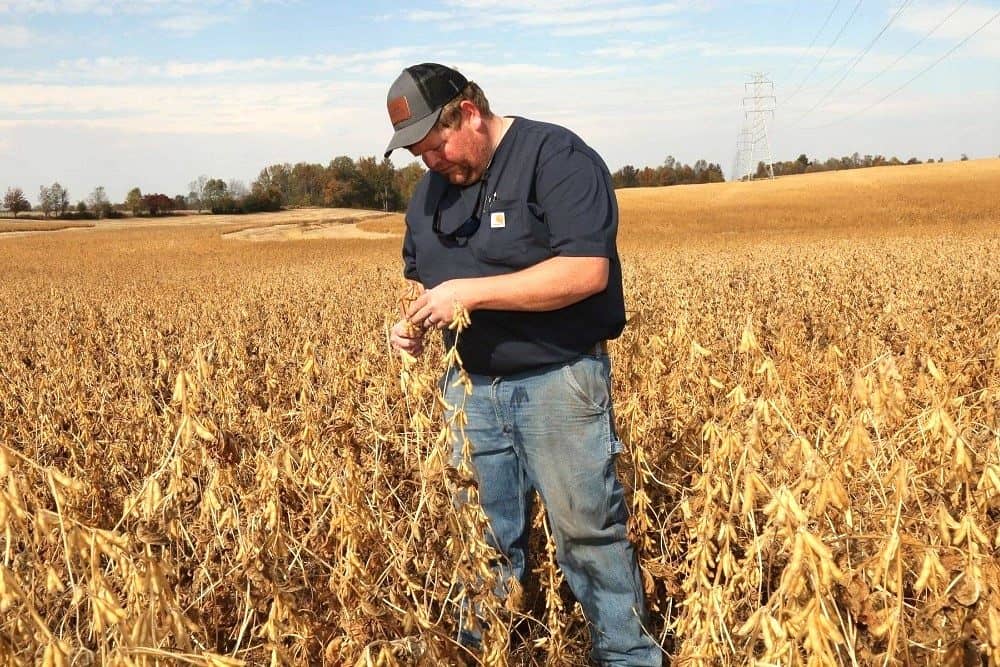ASA President Caleb Ragland: ‘Concerned’ Over Trade War with China

Soybean prices have taken a major hit since President Trump announced his tariff plan on Wednesday, April 2.
Following President Trump’s 54-percent tariff rate increase on Chinese imports, China imposed their own retaliatory tariff of 34-percent on all imports coming from the U.S. Trump has since threatened to tack on an additional 50-percent tariff if China follows through with their tariff.
“We’re very concerned because exports are the heart and soul of the soybean industry here in the United States,” says Caleb Ragland, President of the American Soybean Association (ASA). He’s also a corn and soybean producer from Magnolia, Kentucky, which is about an hour south of Louisville.
“We export right at 50 percent of all of the soybeans we produce,” according to Ragland. “China, in particular, is our largest export customer, currently taking right at a quarter of all of U.S. production. So, every fourth row of soybeans you see has been going to China.”
He says the last trade war seven years ago already cost U.S. soybean farmers a chunk of market share in China.
“We have the precedent from the trade war in 2018. At that time, one out of three rows was going to China, and after all the dust is settled, we have never gained back that full market share that we had. We’ve lost about nine percent of U.S. production that used to be exported to China that now isn’t, and our competitors in South America, mainly in Brazil, have filled that spot. China has partnered with them and invested in infrastructure and ports and rail and roads and bridges, and we’re not likely to get that back.”
Ragland adds that a new trade war with China will likely cost America’s farmers even more overseas market share, something they can’t be profitable without.
“How that relates to now is that we give the opportunity to our competition, they’re going to take that and gobble that up, and we’re liable not to get it back, and we must have strong exports for the soybean industry and agriculture, in general, to remain strong in the U.S. We’re in a tough stretch with the farm economy, already, and hurting exports in combination with the already struggling farm economy is very dangerous and very scary for us in ag. That’s our initial reaction.”
CLICK BELOW for Hoosier Ag Today’s radio news report.
Source: Jesse Allen, Agriculture of America and Market Talk.
